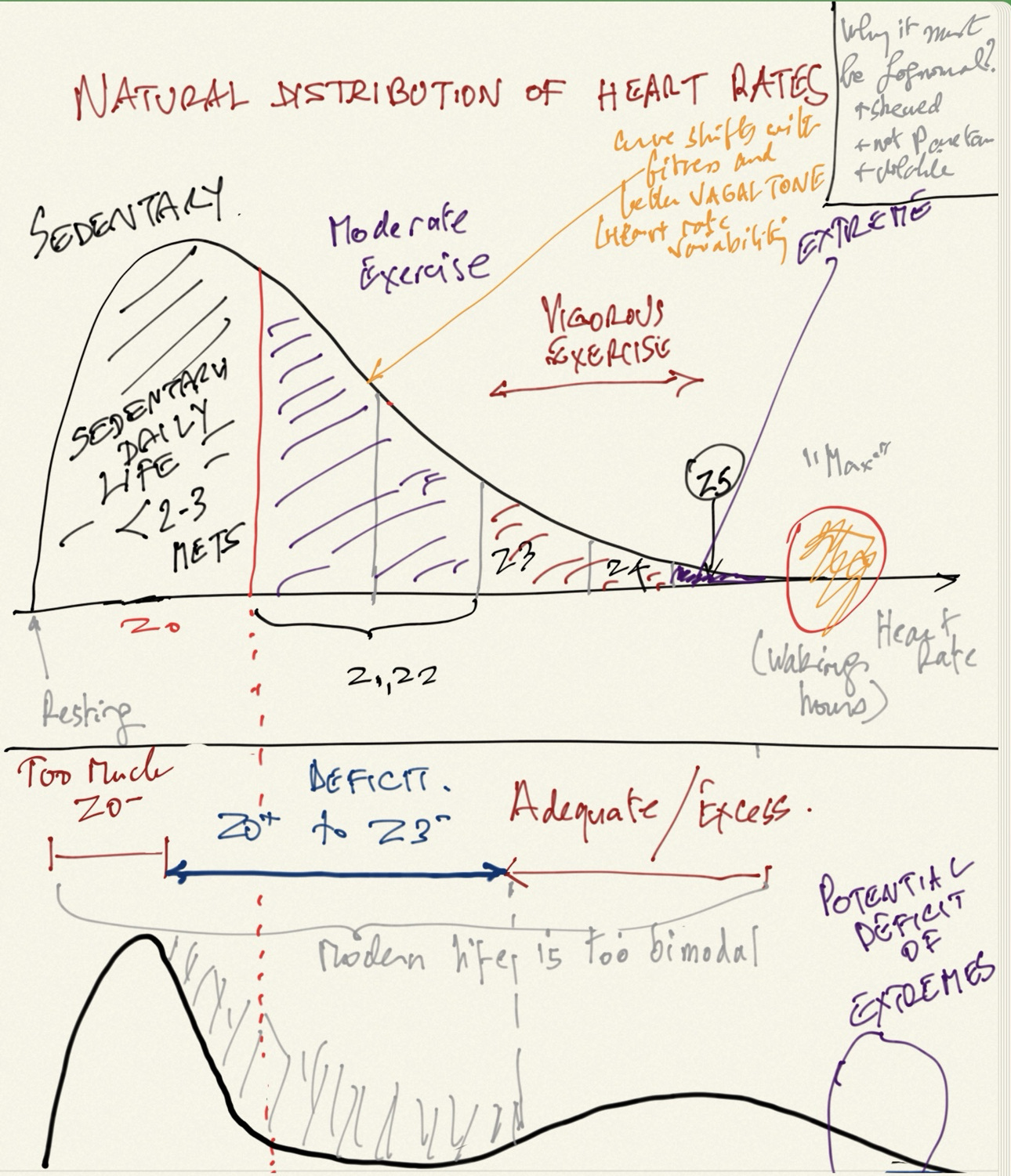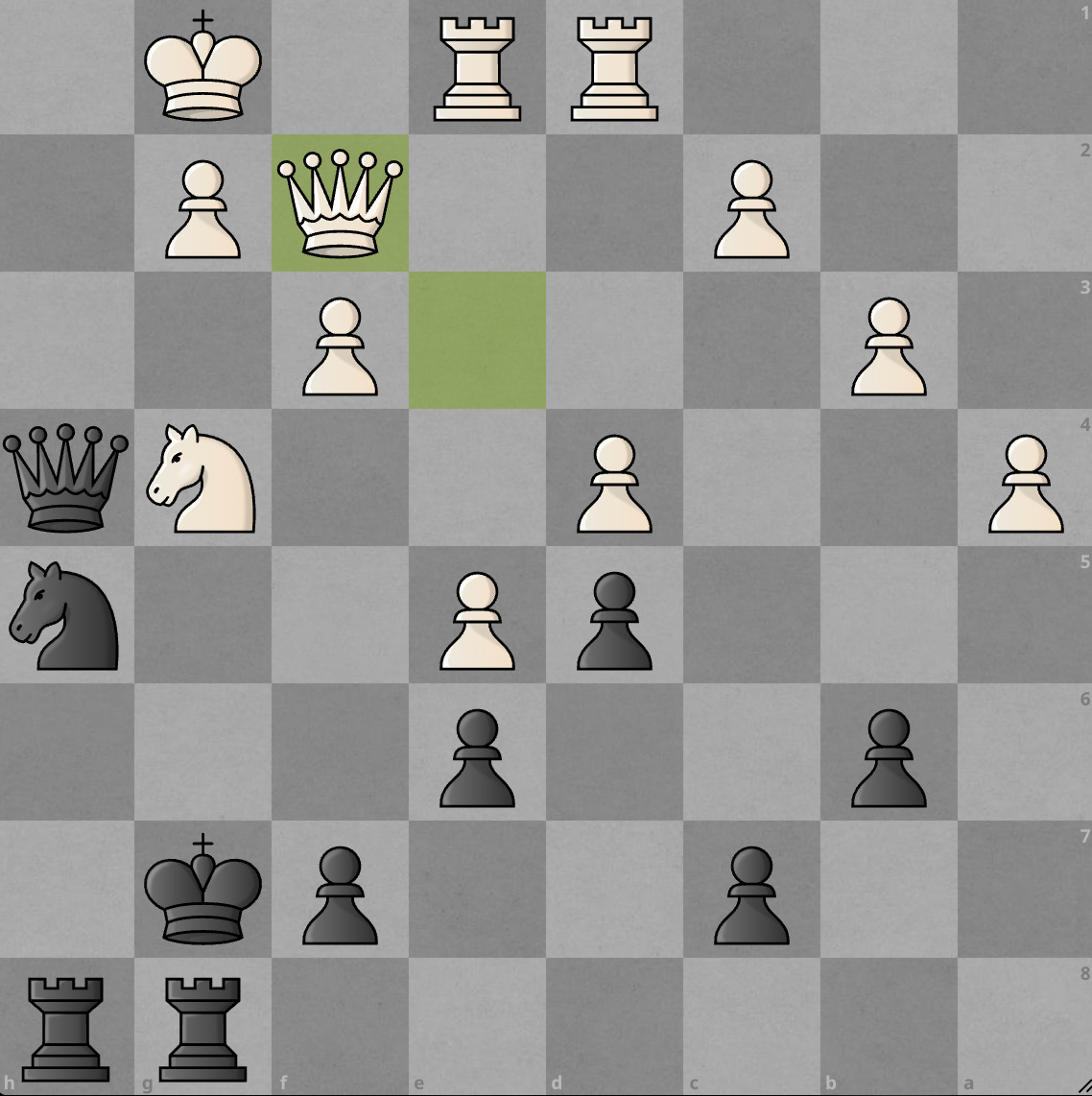Mentabolism
Fueling the Long Game of Knowledge Work
Is knowledge work more of a sprint or a marathon?
I got more into running a couple of years ago (thanks to Laurie) and since then I’ve thought about that question a lot. In fact, my old boss liked to hire endurance athletes. Running and chess skills rarely transfer to work, but some concepts do – like how to train for the long game, with the right kinds of information, habits, and cognitive ‘macronutrients.’
Call it mentabolism: how we transform information into sustained performance.
Humans burn two main sources of fuel: carbohydrates and fat. Carbs are stored as muscle glycogen, which is used up in intense, fast exercises like sprinting, lifting, and throwing. Fat is a more efficient source of fuel. Vastly more efficient – storing 9 calories per gram, while protein and carbs each hold only 4 calories per gram.
Energy is Necessary but Not Sufficient
When you eat a grilled cheese, all of the macronutrients are jumbled together. Your body does something called fuel partitioning. Fats, carbs, and proteins are broken apart, then routed through metabolic pathways to different tissue types.
Most of the best endurance athletes, like runners and swimmers, are prolific fat burners. Through long bouts of low-intensity exercise, like walking and jogging, their bodies adapt – muscles preferentially fuel with fat molecules and reduce the rate at which they use precious stores of glycogen and blood glucose.
Since your fat stores carry more energy with less weight, it’s worth it to drive those adaptations. Long, difficult races are all about small efficiencies that compound over long distances and times. Thorough training → efficient performance.
It’s not only about winning results. Healthy people are metabolically flexible and can smoothly switch between modes (fasted<>fed; rest<>effort) and fuel sources. Metabolic disorders, like insulin resistance, break those pathways and turn excess fuel into a health risk.
CHO, FAT, PRO
I can’t dive in without mapping the three macronutrients to their equivalents in knowledge work. This schema will be more alchemical than chemical, and more of a spectrum than a schema. Part of the process of metabolic adaptation is exercise-driven, part is determined by the availability of certain fuel types.
For example: athletes looking to tune their engine to burn more fat during exercise, one common recommendation is to do exercise in a fasted state. By reducing the availability of carbohydrate (CHO), muscles will burn fat (FAT) first. Protein is not primarily a fuel. It’s a raw material used in muscle synthesis.
In terms of macronutrients for information:
CHO - News, emails, reels, summaries, tweets, pop science, memes.
FAT - Real life, books, history, world models, myths, deep science.
PRO - Sleep, idle musings, conversation, breaks, walks, touching grass, naps.
That should be enough to give you a richer sense of what I’m talking about. Just like human brains prefer glucose as fuel, it’s clear that our mentabolic pathways default to burning CHO. Another similarity: you’ll rarely get pure doses of a single macronutrient. Lastly, consuming and digesting are actions that require energy, so it’s never a tidy line between inputs and outputs.
If you’re reading this, you’re probably training for the long game. You need to learn how to train your body to use both types of fuel – and recover adequately.
Mentabolism
Fuel partitioning is an key part of physical training and overall health. And I think it applies to cognitive work as well, as a part of a broader set of processes, cycles, and pathways – mentabolism – that help us transform information into value.
The goal of learning isn’t to know more stuff. It’s to acquire literacy and change how you behave. If you went to school but didn’t change, did you really learn anything?
“Change is the end result of all true learning.” — Leo Buscaglia
Careers are a long game. You’re in a marathon and require fuel – the right kind of fuel – plus you need drive adaptations to your mentabolism that will allow you to preferentially burn that kind of fuel.
Times recently published an article covering a study on cognition. Our mental capacity might not peak until our 50s or 60s. This lines up with some common protocols, like minimum age for presidents and prime ministers around the world, and common wisdom, like respecting your elders.
Another striking, primordial case: hunters in hunter-gatherer tribes, who might not start to break even on their production until the ripe age of 25. Now, the world is even more complicated – look at how long it takes young people today to be net producers. It’s a dark forest out there and it takes a lot of energy, capital, and time to become a self-sufficient member of the tribe.
To make matters more dire, there aren’t always apprenticeships in knowledge work careers. One reason that entry-level jobs in banking, diplomacy, consulting, and marketing are so sought after (besides being flashy) is that you get to learn the tricks of a very weird trade through immersion. These jobs effectively work like extended fitness programs, similar to what you would see for someone getting ready for an ironman, comprising 2-3 years of prep, loads of low-intensity training, and training camps that drive metabolic adaptation.
Peak performance age for endurance athletes is far later than it is for gymnasts, wrestlers, and sprinters. A long history of high-volume training, recovery, and smart nutrition can easily compensate for youthful speed. Same goes for careers in thinking, where the races are longer, the peak age is later, and the role of fuel partitioning is even more critical.
Fat Knowledge Work
If low-intensity exercise drives metabolic adaptations, what drives mentabolic changes for knowledge workers playing the long game?
Two weeks ago, I helped run an intensive, online course on protocol studies. Classes started at 8 a.m. and ended at 8 p.m. for five days. Despite the intensity, all forty students at the kickoff made it through the week. The courses weren’t a cake walk, either, ranging from Modeling and Verification of Cyberphysical Systems to Social Science of Protocols. It was like cognitive triathlon. A self-serve version of these courses will soon be available at summerofprotocols.com
During Protocol School ‘25, I taught a short class on Applied Protocol Thinking. In some ways, it was my proposal for an evil twin to systems thinking. But one of the key things that inspired that class was this concept of mentabolism. I wanted students to develop literacy, not just run away with a bunch of buzzwords.
During the class I emphasized building a baseline through moderate exercises (the equivalent to heart rate zones Z1/Z2) such as:
Protocol watching
Reading about protocol theory
Trying to implement existing protocols better
Reviving dying, small protocols
Tinkering with existing protocols
Zone 0 is sitting on your butt, doing nothing, scrolling Reels. Zones 3 and 4 are vigorous exercise, like giving talks, writing essays, designing things, event production, and so on. Zone 5 is sprinting – which would be like going all out on a project for months or trying to make a breakthrough innovation.
The point is, we might spend too much time in the extremes – and not enough time in the lower zones that drive positive adaptations. Like the characteristics in the Big-C Creativity framework that Nils Gilman pointed out:
“…(1) introspection; (2) knowing your strengths; (3) focusing, persevering, and not being afraid to make mistakes; (4) competitiveness; (5) begging, borrowing, and stealing great ideas; (6) thriving on ambiguity; and above all, (7) a willingness to suffer.”
To play the long game, you have to build a strong base – not just inspiration. Replace the subject in the activities in that list from my class with whatever you’re working on. The more time you spend in Z2 / Z3, the bigger your gas tank will be, the more work you can do.
Big Tanks vs. Big Engines
Imagine your project will take 20 or 30 years to pull off. Even a slight increase in performance, sustained across the latter half of that project, would compound into a gigantic difference.
A key feature of training for endurance: the more work you do, the more work you can do in the future. Basically, endurance athletes focus on building a big gas tank. It’s fuel, not fitness, that limits development over the long run. The more fuel (knowledge / information / wisdom) that you can effectively burn (not just consume), the better your long-run results will be.
Career performance for knowledge workers is driven by how much of the “easy” work they’re doing. Showing up more days than not. Take this great quote by David Allen:
“Your ability to generate power is directly proportional to your ability to relax.”
Inability to relax = mentabolic inflexibility. You need to face a lot of low-grade stressors to drive adaptation and get sufficient rest. That means reading, writing, studying, talking, editing, tinkering, creating, communicating, delegating… lots and lots of work, done primarily at a relaxed pace, with dogged persistence.
If you’re constantly trying to set personal records, you’ll burn yourself out. Gold standard: enough discipline to get off the couch, enough restraint to focus on the basics. Your goal should be to build a freakish ability to convert the pedestrian, boring flows of information around you into valuable learnings.
Mentabolic Syndrome
You could view things like brainrot, TikTok kids, and waning attentions spans as mentabolic disorders. Constantly drinking from the firehose of a black mirror is likely to create an information surplus. I think you can “out exercise” that kind of high consumption by socializing a lot, especially with a diversity of peers. But people increasingly lack that outlet. Might be good to reconfigure your usage.
Maybe all that excess energy gets turned into aggressive postures (inflammation). As with metabolic inflexibility, we see the ossification of certain pathways. Aortic hardening is a type of physical maladaptation that increases the risk of heart disease and high blood pressure. That can happen if you lift weights a lot and skip out on cardio (including walking).
In mentabolic terms, that means being tuned too specifically to a certain fuel type. Either being hooked on TikToks and not reading or developing an allergy to what would otherwise be fun memes.
Mentabolic Health
I’ll beat this drum even if it gets me in trouble. Short form video is fine. Long form essays are fine. As you can imageine, there are big advantages to being mentabolically flexible. People who demonize short form content are like hidebound proponents of the keto diet. “Deep work” is mentabolic inflexibility – distractions are not so much a hazard to productivity, but inputs that you haven’t yet figured out what to do with.
Humans are like raccoons – we can kind of eat whatever, provided we live an active, outdoorsy lifestyle. My heuristic for this is further explained in Cardio before Chemicals.
Mentabolic health isn’t just about your information diet or exercises. It’s also about physical health, although the connection isn’t as solid nor does it apply to everyone. Personally speaking, physical activity is like my mental vitamins. Lots of walking, jogging, disc golf, cycling, hiking → baseline training, builds my gas tank, keeps my fuel partitioning systems in good shape. Higher intensity training is a bonus, through things like lifting weights and soccer.
Some people don’t feel any improvement in their professional life from being physically fit. Fair enough. If anything, the main, immediate benefit for me is being a more agreeable person. And getting along with people is valuable.
“The ability to get along with people is as purchasable a commodity as sugar and coffee. I pay more for that ability than any under the sun.” — John D. Rockefeller
The other primary benefit is more important. Being in not-bad-shape (I’m not saying become a pro athlete, or even a serious one) means that you’ll be in the game for longer. If your professional peak is decades away… kind of a no brainer to spend some extra time walking, thinking, observing.
A great career isn’t about sprinting harder. It’s about building a bigger tank – and learning to burn the right fuel.





Awesome piece. I can see corollaries with mental health therapies — talk therapy might be Z1, chakra work might be Z3.
Thanks for another stellar framework explainer Tim.